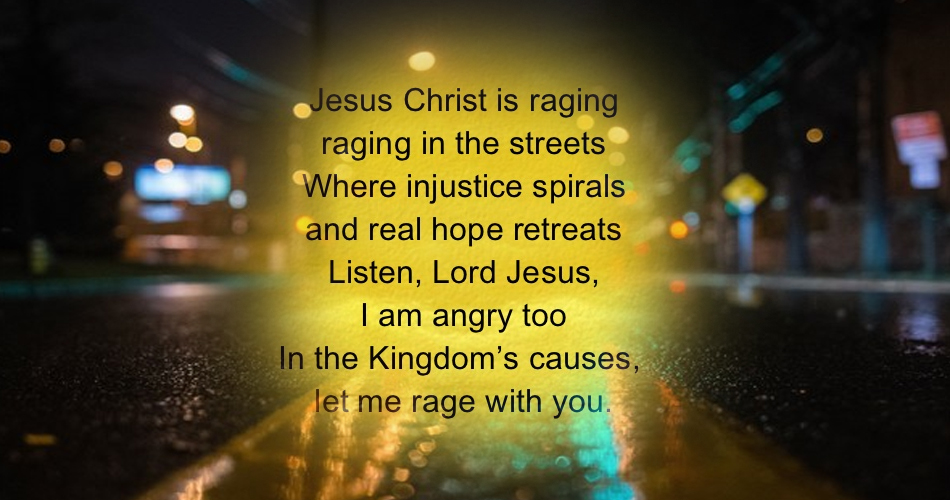May our unity with others draw people to the Source of all unity
Sermon by Andy Wurm, Sunday after Ascension, 2nd June 2019
Sometimes people equate being Christian with being good, even using the terms interchangeably. Someone may have nothing to do with church, but be described as a very Christian person. To see Christianity like that is to get things around the wrong way. Hopefully, being a good person is a consequence of being Christian, but to make them the same thing makes trying to be good the core activity of Christianity, and it’s not.
Theologically speaking, by ourselves, we are incapable of being perfectly good, because we’re not God, so making ‘being a good person’ the goal of your life will only result in a constant sense of failure. Yet sometimes churches have turned the gospel into a drive to be good. In doing so, faithfulness becomes equated with living up to particular standards, in the same way that in Jesus’ time, upholding religious practices, enshrined in laws, became equated with faithfulness to God. This easily leads to the same abuse of power experienced in Jesus’ day, whereby those who decide what ‘being good’ entails, dictate how others should live. And that makes the church into an instrument of control, blocking people from life, rather than being a channel through which people may connect with God.
Today’s gospel passage from John suggests that the core of being Christian is union with God, and everything else flows from that. This passage marks the beginning of the Week of Prayer for Christian Unity, a time when churches remember Jesus’ prayer that we may all be one. Taking that prayer in the sort of legalistic way that I was talking about before results in the brow-beating that sometimes goes on at this time, with church leaders confessing our failure to become one church. But we’re getting things around the wrong way if we make becoming one church the reason for Christian unity.
Jesus’ desire for our unity is for a more significant purpose, which is so that when others see it, they may be drawn to God. It’s not a desire to recruit numbers, but is the natural expression of divine love, which is to share itself. Communion in love is the key sign which reveals God. This is the point being made by Jesus in his prayer, of which we read a portion in today’s gospel reading.
Union with God and fullness of life, are the same thing. That is significant for our prayers, for it means that underneath all that we ask for, is our need for union with God. Our blindness to that often results in our feeling that God doesn’t answer our prayers. Say, for example, a person is depressed and they pray for God to take away their depression. Nothing happens, so they feel let down by God, but the only way God has let them down is by not doing what they asked. That doesn’t mean God hasn’t answered their prayer though. If the true answer to all our needs is union with God, then the way that God will answer our prayers will be by leading us further into union with him. That may be by opening our eyes to the union we already have with God, or by making us aware of how we are blocking ourselves from it, or perhaps by moving away from us, so that our desire for union with God grows. But if our expectation is for something else, we won’t see any of that.
One reason we don’t see God answering our prayer can be that we expect God to speak or act from outside of ourselves, which means we’re expecting an experience of something apart from ourselves acting upon us, or in our lives. Taking bible stories literally can encourage that attitude, for they usually present God as a kind of external agent acting upon a situation, or in the life of an individual. But that’s just presenting God’s action ‘out there’ in more or less concrete terms, so that we can understand something that is really intangible and not necessarily obvious at all.
Another reason we can expect God to speak to us as if God is something out there separate from us, or act in our lives as some kind of agent out there and apart from us, is that we forget how different God is to us. It is because God is so utterly different to us that God is able to speak within us and act within our lives, without at all needing to be something out there that is not us. I’ll put that another way: with other people, because they are like us, they can only speak to us as someone else, someone other. If they act in our lives, it can only be as someone else coming into our space. If I’m sweeping the footpath and someone else comes to do it, the only way I can experience that is by them taking my broom, pushing me aside and beginning to sweep. I cannot sweep the exact part of the footpath with the same broom, if they are. For them to sweep the footpath, I have to stop. For them to have the broom I have to give it up. I will experience them as imposing themselves upon me, infringing upon my space and my activity. But with God, it’s nothing like that. God isn’t like me, God isn’t another version of what I am, so God does not compete with me, or supplant me, when God acts or speaks. God doesn’t take up space in the way I do. For this reason, my love is also God’s love. God loves people through my love, and yet it is still my love.
Writer in spirituality, Henri Nouwen, says that discerning God’s activity requires the discipline of listening to God’s voice in the midst of our concerns, and intentionally allowing time with others to become a space for God. The discipline of listening to God’s voice, involves letting yourself experience communion with God through accepting the way things are. God loves you as you are, so it is through acceptance of what you are that you meet God.
The second discipline required is intentionally allowing time with others to become a space for God. If unity with others is the flip side to unity with God, then engaging with others in ways that bring you together, will therefore provide space for God to be creative in. A simple example of that is a group of people who listen to each other and are willing to share their opinions. One of the best things about such a group is being surprised by what can come out of it.
If union with God is the source of union with other people, then one of the clearest signs of union with God is feeling no animosity towards others. We may want to change them, (if their actions are unjust for example), but we are free of animosity. We are at peace with them. And the same is true regarding ourselves. Peace with ourselves is also clear sign of union with God. Jesus’ wish is that such personal acceptance and peace draw people to the source of all love and life and unity in our universe and that is the very life of God.









